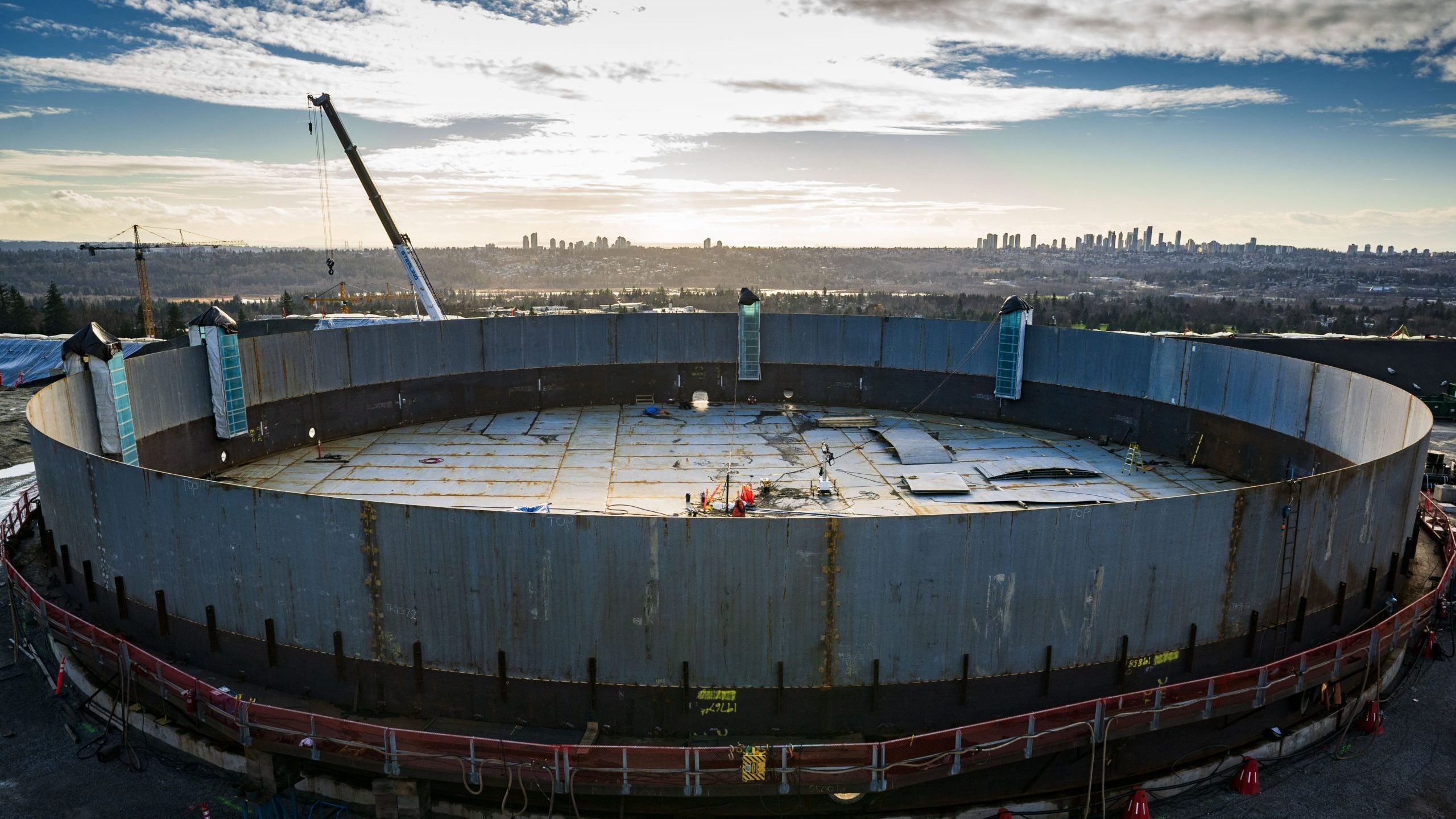Indigenous contributions to building the Trans Mountain pipeline expansion reached a new high in 2022, according to the latest project update.
Last year saw increases in the number of Indigenous people working on the project, the number of contracts with Indigenous businesses, and the total value of those contracts, Trans Mountain said.
Indigenous-owned companies or joint ventures working in construction, enhancements to marine safety and spill response received about $2.1 billion in contracts last year, up from $1.3 billion in 2021.
In total, Trans Mountain reports it has spent $4.8 billion with Indigenous businesses on the pipeline expansion from Edmonton, Alberta to Burnaby, B.C. The project signed 2,146 contracts with Indigenous businesses last year, bringing the total to 6,088.
That supports companies like Kamloops-based Sun Ridge Contracting (SRC), owned by Tk’emlúps te Secwépemc community member Carrie Leonard and her husband Cliff Loucks.
SRC has grown significantly since starting in 1994 with one gravel truck, recently completing several major contracts for the Trans Mountain expansion. Leonard says SRC is a major employer of Indigenous people, providing jobs, training and an annual bursary for Indigenous students enrolled in the trades.
“We knew we wanted to help our community by providing jobs and training,” she says.
Approximately 3,100 Indigenous people have worked on the Trans Mountain expansion as of the end of 2022, an increase of more than 1,000 people compared to 2021, and about 10 per cent of the total project workforce.
The project has also increased the value of its mutual benefit agreements with Indigenous communities along the pipeline route. As of September 30, 2022, Trans Mountain has agreements in place with 69 communities with a total value of more than $650 million, about $70 million more than the previous year.
The details of these agreements are confidential, but they can include financial compensation, commitments for contracting, procurement, employment, training, emergency response and environmental protection, according to the federal government.
The Trans Mountain expansion is about 73 per cent complete and expected to go into service before the end of 2023.
The unaltered reproduction of this content is free of charge with attribution to Canadian Energy Centre Ltd.
